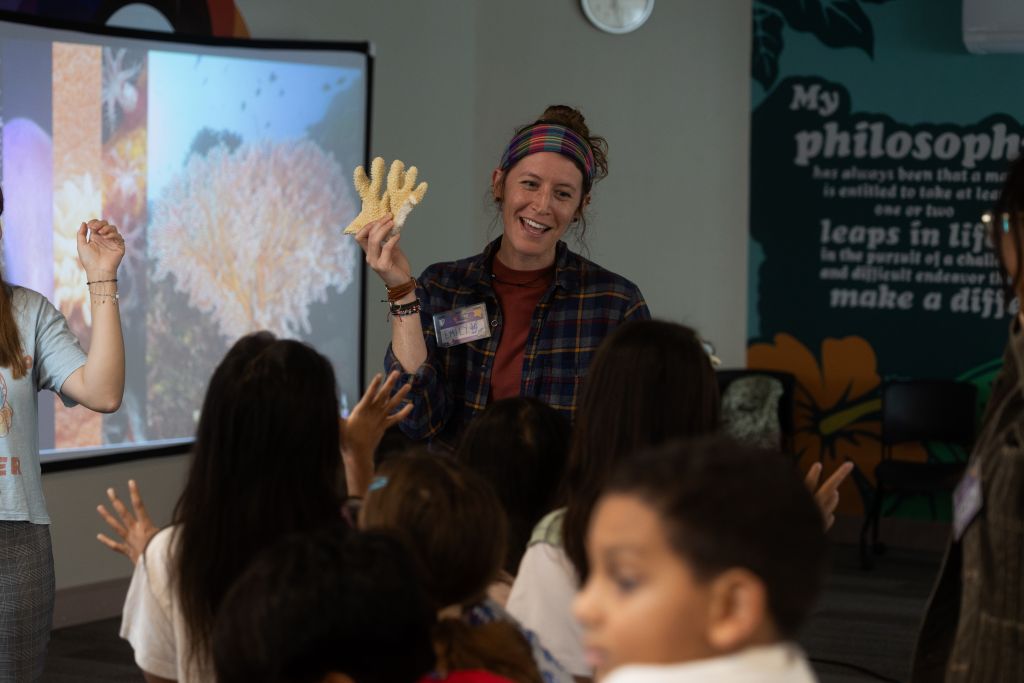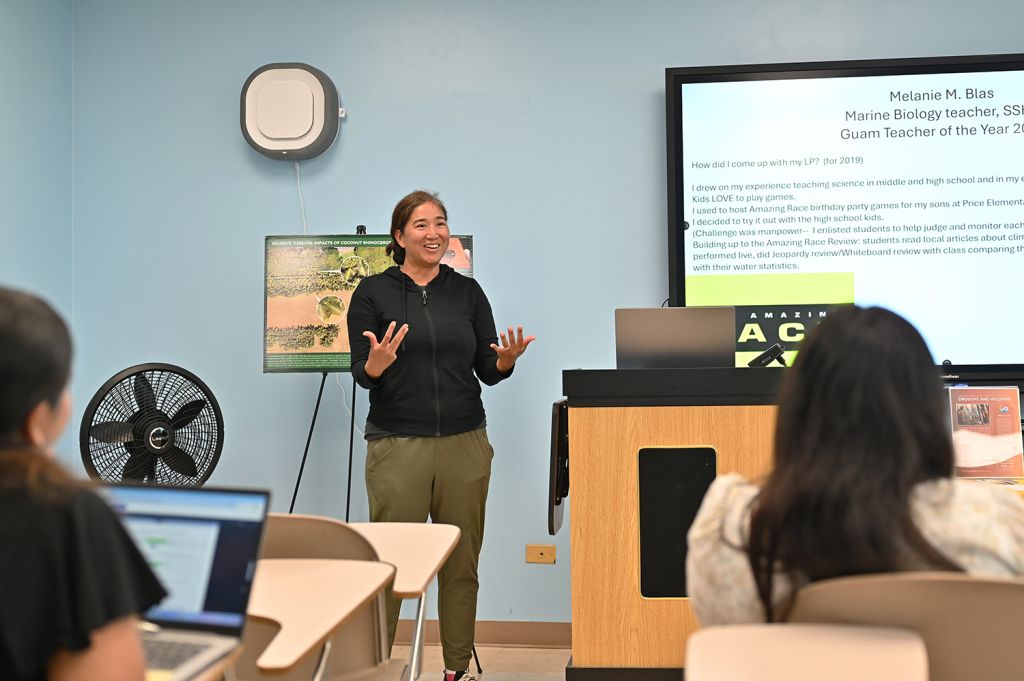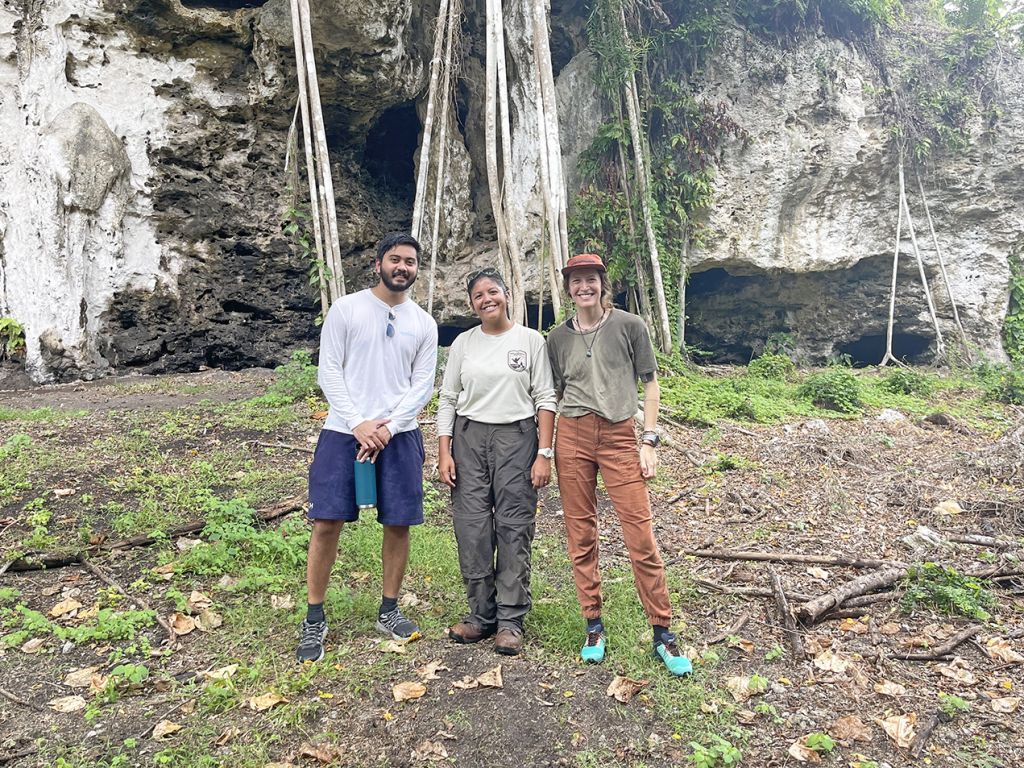PI-CASC connects with Guam educators, shares climate resources
August 6, 2024

The Pacific Islands Climate Adaptation Science Center (PI-CASC) recently engaged with teachers, students, and natural resource professionals on Guam to help promote educational climate resources, including the Education Hub and localized lesson plans on climate change.
Communications coordinator John I. Borja and outreach biologist Emily Sesno connected with agency partners and educators from July 23 to 27 as part of the center’s ongoing efforts to explore potential co-production science opportunities, with focus on education. Some of these networking activities included hosting a climate education session for local teachers, supporting a monthly STEM-based workshop for children, and joining educators on a cultural and historic field trip.
“This week has been such a blast connecting with many facets of the education community here. Between the incredible educators and the ever-excited and curious students, we not only had fun, but learned more about how we can better support climate education efforts,” Sesno said. “We will continue to work with educators to support building place-based and culturally relevant climate resources.”
Sesno, whose background is in marine biology and outdoor and informal education, made a guest appearance at NASA Guam Space Grant’s STEM Saturday outreach event for children ages 6-10, where the theme for the month was coral reefs. While there, she assisted the organizers in teaching kids about corals, their significance, and their biggest threats like coral bleaching.

“We played games, created art, and did our best impressions of a coral reef!” Sesno said. “It was so much fun watching the students connect with what a coral reef is and means to their island home.”
Sesno and Borja also met with a team from the Guam Coral Reef Initiative (GCRI) to trade knowledge on coral reef educational resources. With anticipated coral bleaching in the region, PI-CASC intends to partner with GCRI and other monitoring organizations to produce informational media products that raise awareness of this looming threat against precious coral reef ecosystems.
Engaging with teachers
PI-CASC also hosted a session for the Guam Department of Education’s Summer Teachers Academy to share an upcoming opportunity for local educators to create and implement a locally and culturally relevant lesson plan on climate change. This project first started in 2019, with two Guam teachers creating climate lesson plans for high school marine biology and world geography. Melanie Blas, the teacher who created the marine biology lesson plan, was present at the session and shared her experience with creating the resource.
“By making localized lesson plans, it makes it more meaningful to the students. It empowers them to be a part of the solutions to reshape their futures and improve our world,” Blas said. “The lessons I created are just a start to introducing students to climate change and opening conversations and discussions so that students know that they can help make our world better even before they are able to vote.”
The National Weather Service Guam Forecast Office also joined PI-CASC in the session, providing current data on climate and weather conditions in the region, and sharing how teachers can communicate this information to their students.

Borja and Sesno participated in a field trip with local teachers to the Guam National Wildlife Refuge, as part of the Northern Guam Soil and Water Conservation District’s 2024 Educators Symposium. The tour around the naturally preserved area was guided by PI-CASC Climate Adaptation for Resource Management fellow Marybelle Quinata, who serves as a park ranger and outreach coordinator for the unit. In conversations, some teachers expressed a need for more climate change topics and resources in local schools. With its ongoing efforts to build on climate education, it is PI-CASC’s hope that these resources will prove useful to Pacific Islanders — especially as they are created by Pacific Islanders.

